JOURNAL MEDIATION U K
ISSUE 11
VIEW ALL ISSUES
tutufoundationuk.org











VIEW ALL ISSUES
tutufoundationuk.org











We’d like to take this opportunity to thank our contributors, sponsors and readers for their continued support of the publication and dedication to advocating ADR and mediation.
After taking a short break from publishing, due to the pandemic, the UKMJ is back. Our commitment to providing those in the workplace with the skills and contacts to mediate and offer effective training is unwavering. As a result, we are thrilled to announce from August 2023 the publication will now be quarterly. We will also be launching the UK Mediation Conference in March 2024, full details soon to be announced.
We hope you enjoy this issue and should you wish to subscribe to the hard copy edition, you can do so via our website: www.ukmj.co.uk
Craig KellyRead all issues and subscribe:

5. Reinforcing and developing resilience
10. Future Proofing Your Business with the Skills and Tools of Mediation




13. Inman Cox Mediation
15. Existential and Cognitive Aspects of Successful Mediation
20.
Whilst every care has been taken in compiling this publication, and the statements contained herein are believed to be correct, the publishers do not accept any liability or responsibility for inaccuracies or omissions. Reproduction of any part of this publication is strictly forbidden. We do not endorse, nor is Iconic Media Solutions Ltd affiliated with any company or organisation listed within. It is advised before appointing a mediator or trainer that you carry out your own quality and competence checks.
Developing resilience has long been recognized as a means of surviving individual crises, extreme change and difficulties in interpersonal interactions and relationships. The pandemic has highlighted and heightened that need for resilience. For mediators and others whose work seeks to support parties/clients in turmoil it is a key resource.
This article seeks to help parties/clients understand how to support themselves prior to and during their engagement in mediation. It also seeks to help mediators and others in the helping professions develop their own resilience, including avoiding becoming a ‘lightning rod’ of emotional reactions between the parties/clients whom they are serving.
Contents:
• The need for adaptive Systems
• The 5 ‘A’s
• What lies behind the 5 ‘A’s
• Moving forward with an action checklist
Human beings are animals. Charles Darwin (in ‘On the Origin of Species’, 5th edition, 1869) introduced the phrase “survival of the fittest” to mean “better designed for an immediate local environment”. To survive we need to adapt to our surrounding eco-systems at a macro and micro level. If we can change we can accommodate the challenges facing us. This is as true in business and science as it is for healthcare professionals.
This article seeks to bridge national cultural differences in behaviours and norms. Some differences across cultural manifestations of the approaches suggested in response to this paper may emerge. But the basic premise behind what is offered below is that we human beings have emerged from the animal kingdom, no matter in which continent, and that we have similar needs to survive.
The 5 ‘A’s:
To meet the challenge of crisis we are thrown into an uncomfortable place. We need to react appropriately, thinking about the short-term requirements as well as the long-term implications. We often need to act fast. Our personality preferences may require differing amounts of encouragement, engagement, reflection time, planning time, research into options available, inclusion, affection, control. Such requirements may be diagonally opposed to those closest to us or parties in a mediation or clients, causing friction, discomfort and even more need for inner strength.
My model of the 5 ‘A’s was designed to be a framework to help us think about how to build inner strength through resilience. This does not imply that any individual coping mechanism used to date is wrong, nor is it any criticism of alternate responses to change. Rather, the 5’A’s represent a focused approach through which to work out how best to respond to a crisis that has emerged, in a way that is practical and individually appropriate.
The 5 ‘As’ that follow are most usefully addressed in a linear, iterative fashion. However, they can also help in different orders. They seek to help each of us think about how to build inner strength through resilience.
1. Acknowledge:
• The reality of the situation facing you: It is not a mirage; it is reality
• Your feelings: They are real too; they are deep; they need to be listened to
• Any echoes of past experiences: You may have felt out of control; this could impact how you might respond now if not acknowledged now
2. Accept:
• That change is needed: It may be uncomfortable; it may get in the way of plans and hopes; it may feel frightening
• That the challenges facing you are not in your control; your response to them is
3. Acclimatize:
• To the impacts of the challenge(s) on your way of life: Your feelings; your interactions with others; your approach to what you need to address and ride out the challenge(s) facing you; the priorities you need to implement from basic needs of food and shelter to emotional needs
4. Align:
• Your needs and thoughts with the reality of the situation: Can you do what you want to do or do you need to adjust your thoughts? Can you remove any blocks to new behaviours, activities or approaches which might get in the way?
5. Act:
• Put into action what it is in your gift to do: What you have control over; what you can influence; what gives you energy; what supports you
• Create an environment at home or work or in society in which you can be productive
Psychological resilience has been defined as ‘the ability to mentally or emotionally cope with a crisis’ and is seen to exist ‘when the person uses mental processes and behaviours to protect the self from the potential negative effects of stressors’. (Wikipedia)
Key to the usage of the 5 ‘A’s as a route to building resilience and inner strength in times of crisis is an awareness that previous ways of behaving and reacting in ‘normal’ times may need to be unlearnt and/or adapted. The sunlight emerging from this is a liberation or freedom from conditioning to the known. The cloud that could overshadow it is having the courage to change. The 5 ‘A’s are a scaffold on which to hang that courage, step by step, in order to address the particular challenge or challenges which have created a crisis and through which to create a new ‘normal’ for the duration of the crisis.
Beyond an individual crisis, however, are ongoing challenges, including the need for mediation, that can prompt a need for adaptability. Like drawing or learning a musical instrument, the more practice there is in adapting, the less scary this is and the more skilled someone can become at developing resilience. So behind the steps of the 5 ‘A’s is an ongoing framework - another scaffold - against which to continually refresh and refine approaches to change, including when there is a long-term crisis lasting more than a few months, such as the coronavirus pandemic. I call these the 5 ‘re-A’s’:
1. re-Acknowledge:
• The challenges that are reality
• Your reaction to the challenge: Your feelings, worries, past successes in resilience-building
2. re-Accept:
• The shift in mindset that is needed to meet the challenge(s)
• That the activities you will need to undertake are in your control: This includes overcoming any blocks to meeting past challenges that need addressing
3. re- Acclimatise :
• To the reality and ongoing changes you need to make to the way you live, including: Your feelings; your interactions with others; your approach to what you need to address; the priorities you need to implement, from basic needs of food and shelter to emotional needs
4. re- Align :
• How you have adapted to past challenges and what you have recognised you need to keep or change or adapt to the current challenge or ongoing, long-term challenge
5. re -Act:
• Put in place your action plan: New, amended or previous approaches
Moving forward with an action checklist:
The Table below offers ideas to consider when using the scaffold of the 5 ‘A’s and the 5 ‘re-A’s:
C(i) What?
What overall activity areas during a day, week , month need to take place?
For mediation?
Acknowledge:
- The reality of the situation facing you
Your feelings
Any echoes of past experiences to note
Accept:
- That change is needed
- That the challenges facing you are not in your control but your response to them is
Acclimatise:
- To the impacts of the challenge(s) on your way of life: Your feelings, your interactions with others, what you need, including priorities
Align:
- Your needs and thoughts with the reality of the situation: Can you do what you want to do or is there a need to keep, change or adapt some of your activity?
Act:
Reality checks Not hankering after what you cannot have (eg going out) but recognizing the need to create a new normal (eg staying in)
Mindset shifts
What is in your control that you can change to meet the challenge? (Eg how to work, shop etc; the skills you can offer differently)
Individual differences What is needed to address the needs of others as well as yourself?
The core of who you are and what you need
- Put into action what it is in your gift to do: What you have control over, can influence, gives you energy, supports you
- Create an environment at home or work or in society in which you can be productive
Boundaries
What activity characteristics /values need to be kept/replaced/reconstr ucted? (eg the social, competitive and physical parts to sport)
What actions are and are not possible? (Eg scenario planning)
C(ii). By When?
What targets do you want to reach, with estimated timescales?
C(iii) How?
What specific activity is required?
Eg online meetings, online shopping, supplying take-aways vs in-restaurant meals)
Eg limiting agenda items at a meeting to create more time for discussion
Eg exercising differently; meeting others in different ways than face to face
Eg keeping a balance between week and weekend activity, work and social activity; creating, managing and ticking off activity lists;
When using the 5 ‘A’s and ‘re-A’s scaffold as individuals it is important to bear in mind that we all have ‘hot buttons’, or issues that upset us, and which, if pressed, can cause us to be anxious, stressed, angry or sad. In turn this can impact the effectiveness of collaborative actions or requirements in times of crisis and impact on our resilience and inner strength.
Additionally, when developing our own resilience and inner strength, others may be doing the same. As a result, it is wise to factor in the need for psychological safety for ourselves and others when developing appropriate courses of action. That may mean more time is needed as we recognise diverse approaches to life, individual cultural and sub-cultural norms, different personality needs, different
perspectives on appropriate actions to take for the ablebodied and less able-bodied, those of different races and religious beliefs to our own. But it is time well spent and could save time overcoming inter-personal hurdles that need vaulting in the longer term and help in settling a mediation.
It is also worth remembering that giving to others is a known antidote to stress, in turn, therefore, giving strength to ourselves. When planning how to build inner strength and resilience for ourselves, in family units across teams and for a mediation developing a capacity through which to forgive others who may not realise that they have caused stress along the way can be additionally helpful.
When teams or two mediation parties need to re-assess how they can function with greater adaptability in a crisis the 5 ‘A’s and ‘re-A’s scaffold can also help identify what the challenges are that need addressing whilst providing a common language for all team members. Recognizing – and acknowledging –differences and needs will be important. So too will be a refocused clarity of purpose, roles, communication methods (both formal and informal, transactional (tasks) and relational (interpersonal support)), structure (allowing space for work and adjusting deadlines where possible to accommodate new ways of working), as well as, for example, scenario planning for cash-flows, funding options, sales flows, supply-chain requirements.
The approach to building inner strength and resilience in times of crisis posited in this paper is endorsed by words from a familiar quotation to ‘accept the things we cannot change, courage to change the things we can change, and the wisdom to know the difference.’ Understanding and knowing our individual needs and the needs of others is fundamental. Recognizing the losses of familiar routines, physical connections and presence and the uncertainties that can be caused by a crisis highlight what is at stake without taking action. Addressing uncertainties by taking control is not only practical – it is enormously empowering, re-setting norms, expectations, predictability and a sense of safety, and can thereby lead to (re-) building inner strength and resilience.
Susan Blum has over 35 years of working experience within the Human Rights field (UNHCR and The British Refugee Council), as a management consultant focusing on organisation behaviours, culture and change (Coopers and Lybrand Deloitte, PricewaterhouseCoopers and IBM) and as an accredited Executive and Team Coach, Civil and Workplace Mediator (Susan.M.Blum Ltd.).
If you wish to discuss the subject of this paper or specific issues raised by it please do not hesitate to contact Susan at susan@smblumltd.com or on her mobile: 07391 748182.
Consultants and GPs who:
Have undertaken appropriate Medico-Legal training and agreed to undertake refresher training every 3 years so that they are consistently up to date with all the latest rules and procedures.
Have confirmed their agreement to adhere to specified standards of good practice covering compliance, availability and service by signing a Code of Good Practice .
Have satisfied SpecialistInfo's Lawyers as to the qual ity of his or her reports by submitting an anonymised sample report for review*, including presentation and compliance with Civil Procedure Rules
Have their Medico-Legal CV listed on SpecialistInfo
Consultants and GPs who:
Have undertaken appropriate Medico-Legal training and agreed to undertake refresher training every 3 years so that they are consistently up to date with all the latest rules and procedures.
Have their Medico-Legal CV listed on SpecialistInfo

The Faculty of Expert Witnesses Panel ( the 'FEW' ) promotes high quality Medico-Legal expertise to law firms and insurance companies. Membership of the FEW has two grades: Unlike other panels, membership
If you are a medical expert interested in joining our panel or you’re a legal company looking for quality experts, please contact the team here at SpecialistInfo: info@specialistinfo.com 01423 562 003

With a cast of characters that includes a fat cat, seventeen camels, and a man with 83 problems, and drawing inspiration from quantum physics, research on risk aversion and modern linguistic theory, this book is essential reading for mediators, mediation advocates and negotiators.
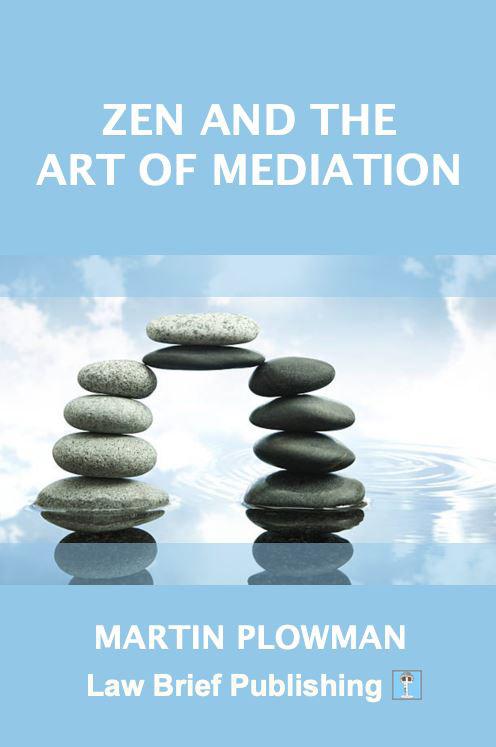
 by Martin Plowman.
by Martin Plowman.
From one of the UK’s busiest mediators. Based on over a thousand successful mediations!
£19.99 paperback, £15.99 in kindle format, available from amazon





WITH UCLAN’S AWARD WINNING CENTRE FOR MEDIATION

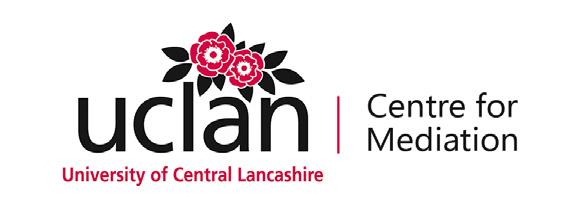
“Thought provoking, funny, and ridiculously helpful to mediators and those involved in mediation”
Mark Fitch, Mediator and Author
 Jane Gunn
Jane Gunn
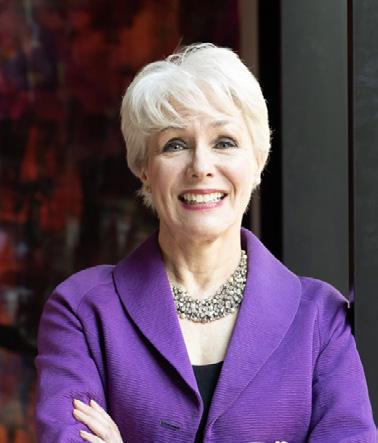
“The key skill that differentiates survivors from the rest in times of change, challenge and crisis is the ability to acknowledge, understand and manage conflict”
The stakes couldn’t be higher right now with economic collapse, climate change, rising costs and global tension as some of the threats on the horizon, following on from a pandemic crisis. There is certainly no getting “back to normal” but rather an acceptance that we must adapt and be ready to deal with a cycle of crises and
that this instability is causing an external and internal sense of conflict, constant fear and uncertainty.
In the boardroom this is leading to difficult decisions and disagreements around future proofing the business. And in the workplace, there is an increase in employee – employer disputes, tension in teams and challenging communications, difficulties adapting to hybrid working and burnout leading to sickness and the loss of critical staff.
This fear-based approach means that we humans often revert to ineffective responses guided by patterns of
behaviour from past experiences and situations that can cloud our thinking. We then lack the ability to see things in perspective and think carefully and critically about the consequences of different decisions on the path ahead. Mediation and the use of mediation skills and tools offer the opportunity to avoid and manage conflict and disputes at the earliest opportunity.
The following skills and tools form the basis of the mediation process and all leaders, whether at board, executive or team level would benefit from incorporating them into their business processes:

MEETING INITIATION, DESIGN and FACILITATION
Bringing the right people together and creating the best process for dynamic dialogue
ISSUE ANALYSIS and OUTCOME DEFINITION
Discerning and agreeing what concerns need to be addressed and identifying possible outcomes
CURIOSITY and STORYTELLING
Using questioning to elicit background, context and reasoning
EMOTIONAL and SOCIAL INTELLIGENCE
Building successful relationships that recognise and respect difference and diversity
COMPLEX PROBLEM SOLVING
Knowing how to work with uncertainty and lack of clarity
CREATIVITY, INTUITION and VISIONARY THINKING
Expanding thinking to discover new ideas and solutions
RESILIENCE and PERSEVERENCE
Having the tenacity to work with challenges and set-backs
Despite advances in technology, including the recent introduction of ChatGPT, we humans remain at heart hunter gatherers with fight or flight instincts at the ready.
Two further things will distinguish the winners from the losers in future proofing their company:
1. The inclusive approach to stakeholders – listening to, understanding and responding to the needs, interests, fears and concerns of all the organisations’ stakeholders including: board members, partners, employees, investors, suppliers, customers or clients
2. Understanding that the adversarial approach to relationships is one of the key things holding companies back from achieving their potential
To accept, acknowledge and actively manage conflict at the earliest opportunity and to see the opportunity in doing so will be a key differentiating factor.

Taking steps to train staff from the boardroom down to the shop floor so that everyone is equipped and confident to deal with change, challenge and crisis without resorting to adversarial behaviour and processes is a win-win approach.
There are three simple steps to this approach. We need to encourage:
• Listen - To learn the skills and to be open to hear and respond to the message others are trying to get across to us.
• Learn - To be willing to learn from others even when we fundamentally disagree with them.
• Love - We must be prepared to show love and respect to all, no matter what their beliefs, race, creed or colour. Simple but not easy!
To quote American lawyer Gerry Spence who wrote How to Argue and Win Every Time (1996):
In essence, we remain pre-historic in our approach to conflict. In emotional terms we have not developed as fast as the world around us –this in itself is conflict.
We must learn simple but effective ways to communicate with one another. How to speak, how to listen. How to communicate honestly to achieve our needs and realise our dreams rather than splattering human bodies across the landscape whether metaphorically or in reality.
As a business leader commented this week, what we really face is a crisis of governance and culture and mediation is the skill set that could avert that crisis.
As a global community of business leaders, thought leaders and individuals we have a unique opportunity, at pivotal point in history, to promote the essence and the principles of dispute resolution and conflict management to create a more harmonious and peaceful world.
Using and promoting the various skills, tools, mindsets and methods of mediation and conflict management and recognising the opportunities to take them beyond the parameters of litigation and formal dispute resolution to future proof our businesses at a time of great disruption.
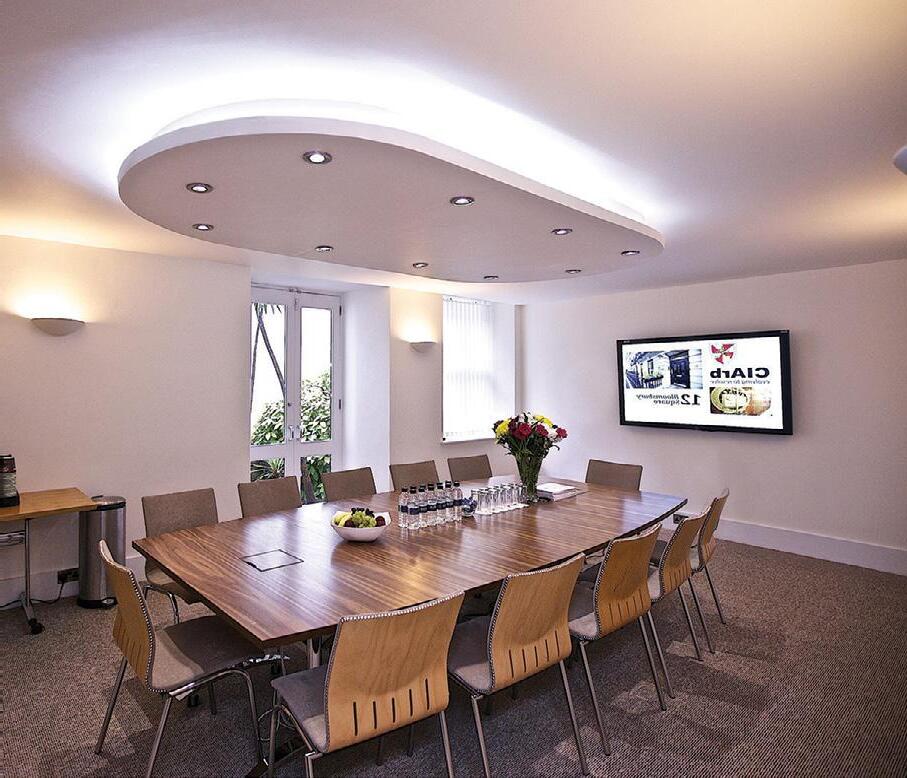

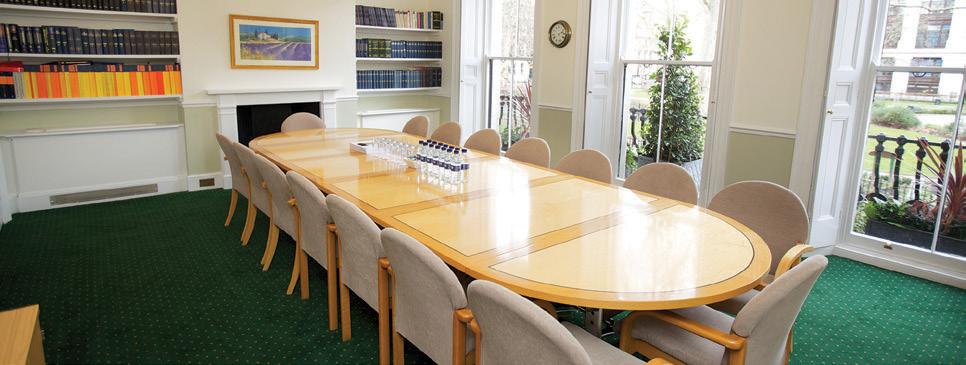
CIArb’s Georgian premises are located on one of London’s oldest garden squares. Conveniently situated in central London and close to all major transport links, 12 Bloomsbury Square offers:
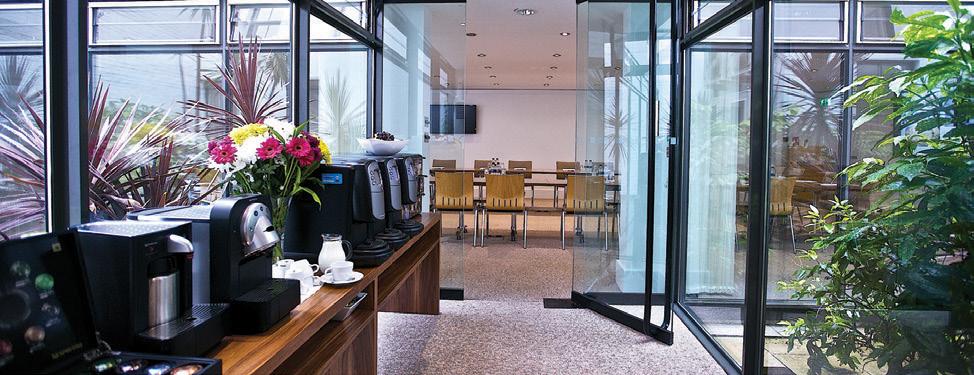

• Open evenings and weekends
• 13 rooms ranging in capacity and configuration
• Accommodation arranged at special rates in local hotels
• Secure facilities available for overnight storage of hearing documents
• Technical support
• Catering services
• Private rooms available for mediations
Established by James Inman, Inman Cox Mediation are dedicated to getting you a resolution – no matter the circumstances of the dispute. We’re here to provide expert advice, and equip you with the tools needed to resolve future disputes and prevent them from arising in the first instance.

Inman Cox Mediation, ICM, was formed a little over 5 years ago. Since then, the civil and commercial mediation practice has grown steadily providing its specialist services to a select group of clients, both individual and corporate. Today, ICM is proud to have a major UK Plc as a client as well as corporate clients in the hospitality sector.
James Inman, ICM founder says the success has come down to investing time with a select number of clients that can benefit from our approach. “We have developed a highly effective workplace mediation approach which seeks to align itself fully with the objectives of the business. Working closely with HR professionals and by understanding an organisational structure, culture, existing dispute procedures and training we can introduce mediation quickly and cost effectively “
James Inman established Inman Cox Mediation in 2018 after qualifying with the Society of Mediators. Prior to starting Inman Cox Mediation, James had a successful career in financial services both and it was during this time that he recognised a need for professional, timely, and knowledgeable mediation services. It was this realisation that led James to create Inman Cox Mediation, with the goal and passion of creating a comprehensive civil and commercial mediation service that specialises in workplace disputes.

A qualified civil and commercial, workplace and SEND/ALN mediator, Kelley started working in Legal Practice in 2005 and went on to achieve her Legal Degree (LLB) in 2009. Before embarking on her mediation training, Kelley managed a legal practice for several years.With more than 200 mediations performed to date, Kelley is an approved mediator by the Civil Mediation Council and the College of Mediators to provide civil and commercial mediations, workplace mediations, and SEND mediations. She brings a wealth of professional and life experience with her business, legal and personal roles in life.
There are a multitude of reasons for disputes, but some of the most common are:
• Demands of Family Lives
• Stress
• Work
• Career Expectations
• Differences in Work Ethics
• Organisation vs Personal Standards
• Organisational Change
• Cultural Differences
• Poor Communication
Some or all of these factors can lead to alienation, disengagement and if not addressed in a timely way, to a toxic working environment, stress, poor health, absenteeism and business loss. Individuals will have a different perception about the relative importance of these. Where there are failures in management leadership it is often a result of overlooking these factors.
Increasingly employers are recognising the need to change the way in which workplace conflicts are managed. Disputes are costly. Companies are looking beyond the traditional grievance and disciplinary procedures, and instead are opting to engage with mediation and dispute resolution techniques to support effective dynamics and manage conflicts.
ICM offers comprehensive in -house training to work with managers and employees alike to improve team function. This where Inman Cox Mediation can help. Contact us today for a free, without obligation consultation.
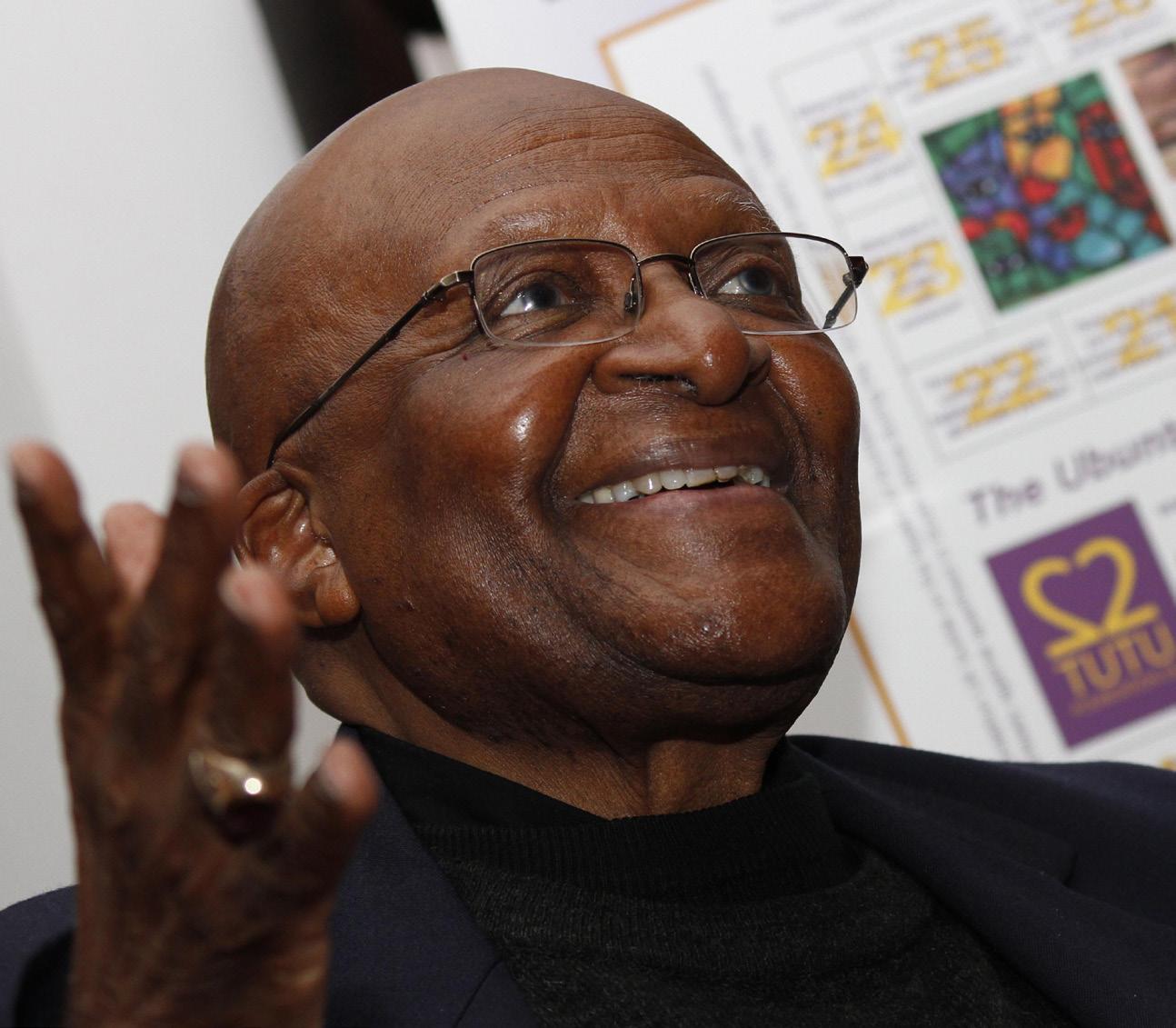

Abstract
In such an ethnically and culturally diverse world of today, conflict resolution and the role of mediators are getting more and more important. Though the underlying issue of a conflict may differ in so many ways, there is one common element in every conflict: a human involvement. Thereby, it is understandable that existential aspects of human condition may shed some light on dispute resolution. Undoubtedly, existential anxieties as fear of death & freedom, loneliness, time and temporality and uncertainty inevitably interfere with successful outcomes of mediation. A mediator should properly address all these existential concerns and appropriately handle heavy emotions created by them. Thus, it is important for mediator to have basic knowledge of existential aspects of conflict resolution. Likewise, Mediator’s information level on such cognitive processes as brain’s working systems and biases also play a crucial role in resolving the conflicts successfully. In this

sense, practical applications of existential philosophies and some facts of cognitive sciences are the essential elements of successful mediation outcomes. A psychologically and cognitively informed mediator are much more able to solve the conflicts in a transformative manner.

Introduction
From the moment an infant begins to sense the differentiation between self and others, it starts to conflict to exist in the world. Anyone with a moderate knowledge of infants based on simple observation may easily realise how powerfully it can obstinate when it is prevented from fulfilling its wishes. In fact, there is a few bigger sources of stress than a toddler who is trying to develop a sense of identity through conflicting with its basic caregivers. No matter how unimportant underlying issue is, conflicting to exist as a separate identity by drawing borders between
self and the others makes sense. This biological fact brings us to another existential reality: To conflict is to exist. To put it in Rene Descartes’s terms: I conflict therefore I am. 1
This existential struggle to exist in early years of life has a crucial role for the construction of the ‘Ego’ without which a healthy sense of self cannot be developed. Issues of self and identity raise profound and often painful questions about who we are. 2 Thus, it is within our deep nature to feel stress whenever we enter into a dispute; even for the most trivial ones, to experience a kind of existential anxiety with any conflict is inevitable. Taken into consideration this fact, it is easy to understand why it takes arduous work to manage and settle conflicts in a proper and successful manner. In this article, I tried to introduce some psychological and cognitive tools and discourses that will help mediator cope with difficulties arising from the existential stress of the conflict resolution.
As widely accepted by scientific circles, cognition & psychology are the direct result of biological & neurological mechanisms of the brain and they are not separate but unique entities either of which completes the other and could not exist without the other. Additionally, we are born with different propensities for aggressive behaviour depending on our gender, our genetic background, the amount of nourishment we received from placenta, and our mother’s consumption of nicotine, alcohol, and medication during pregnancy. 3 Thereby, I took into account some neurobiological facts such as information processing (thinking) systems & biases that may have considerate amount of impact on the psychology of the conflicting parties, and the mediator as well, in my article.
However, this article does not cover all conventional applications of a successful mediation that has been said and written until now by almost each scientific work on the subject. Instead, it will focus on two main elements: Psychological and cognitive factors that significantly affect the success of the mediation process in a practical manner: Meeting the existential needs of disputants and keeping the parties’ cognition in the right thinking system.
It’s also worth mentioning that any organization, corporate or institution cannot foster without peace in the workplace. To create and sustain peaceful environment in and out of workplace heavily depends on negotiation skills and successful mediation outcomes. Thus, it is very important for the workplace mediators to bear in mind the facts and the opinions presented in this article, while they are performing their duties, in order to produce transformative relations for both inside and outside of the workplace.
In this study, I tried to explore the cognitive and psychological facts that mediator may utilise to effectively conduct the mediation process. The idea that ignited this effort was to explore the patterns of conflict and its resolution as well. In this sense, the common factor of ‘human involvement’ in conflicts led me to deep looking and scientific observation to find out some practical applications to get successful outcomes in mediation. For this aim, I
used existential philosophy and its main elements such as fear of death & freedom, loneliness, time & temporality, and uncertainty. These elements help me reinterpret some practical applications of conflict resolution to reach successful outcomes in mediation. The question of ‘what the particular existential needs of conflicting parties are’ was the central theme of my work.
I also searched for the past literature thoroughly to determine the particular characteristics of decision making and thinking processes, since I think that they play crucial roles for successful outcomes in mediation. I used my previous professional experience and knowledge to scientifically show correlation between the cognitive and psychological attitudes of mediator and outcomes of mediation. As a former High Court Justice, knowing brain’s thinking systems, biases and decision-making processes eased my job. Some cognitive methods to overcome the biased thinking was not unfamiliar to me. Besides, my curiosity on transformative mediation took me to contemplate and search on psychological and cognitive factors that play important role for successful outcomes. After researching the relevant background literature thoroughly, I tried to combine all the essential elements which I found worth writing in this article to create an integrated and meaningful scientific work on the subject.
Conflict takes place in a diverse world, a world of ethnic, national, geographical, cultural, economic, social, religious, and legal differences. 4 In such a complex environment of today’s world, conflict may show up in any race, nation, ethnicity, gender, or age. Likewise, anything from the most materialistic objects to abstract honorific issues can be a source of a conflict.
Though the subject and object of a conflict may vary in countless ways, they all share one commonality: a human element. An element that inevitably brings different values, emotions, opinions, attitudes, sensitivities and even childhood traumas into the equation of dispute resolution and consecutively complicates it. In many senses, conflict and dispute arise at our boundaries and edges. 5 Yet the psychologically conscious mediator’s main task stems from the very same contrast: to find and utilize universal patterns arising from simply ‘being a human’ that will help mediators successfully manage and resolve conflicts. This idea brings us the necessity to shed a light on to conflicts through existential lenses.
According to a widely accepted definition, existentialism may be defined as philosophical standpoint which gives priority to existence over essence. 6 The concept of ‘universal patterns of human condition’ is intrinsically connected with the most significant feature of being a human: Existence. In other words, to conquer the ever-standing patterns of human behaviours in a conflict, one must start with each unique individual experience. In this sense, existentialismas a philosophy of existence- which takes the idea of ‘individual personal experience’ as a central theme, may help the mediator explore and resolve the unique codes of all conflicts.
There are some certain concepts of existential literature which are adaptable to mediator’s toolbox to relevantly deal with the anxieties arising simply from basic existential concerns. The most significant ones can be counted as time & temporality, uncertainty, fear of death, need to be accepted, meaning of life and fear of freedom. These are the very existential concepts that a successful mediator must bear in mind without which a successful outcome would certainly be less likely. Looking conflict through this existential aspect, it is reasonable to claim that addressing these stressors in mediation process has a crucial importance on the likelihood of a successful mediation. However, in any mediation process, these existential concerns will show up in such a subtle form that only the mediators with appropriate toolbox may recognise and fix these problems arising from them.
The first challenge to the mediator is to overcome the parties fixated desire to litigate, and their psychological relectance to mediate. 7 Just like the resistance to mediate, disbelief in process and mediator, forcing the other party to make concessions, struggle to prove righteousness, making unreasonable offers to humiliate other party, demanding unrealistic claims to revenge on other party may be given as some examples of these subtle forms.
Though addressing these subtle forms of existential concerns is not an easy task, an ingenious mediator may develop an appropriate remedy no matter how difficult the task is. Asking open-ended questions, active listening, summarizing, and reframing are the most renowned conventional methods to give the disputant an opportunity to ventilate on these stresses and consecutively release the tension. Existential concerns will inevitably produce certain heavy emotions which should be handled appropriately to get successful outcomes. The lesson here for mediators is that suppressing emotion is not only impossible, but also counterproductive. 8 If skilfully applied, it is no doubt that any disputant will be more eager to end the conflict in a relaxed mood, free from existential anxiety. In this sense, any proper comparison made by mediator that will show the advantages of mediation against litigation in terms of time and cost efficiency will obviously ease them on anxieties created by ‘time and temporality’ related issues. Similarly, an opening statement that clearly puts the action plan in an appropriate and detailed manner will of course help them cope with feelings of uncertainty.
Mediators differ as to the extent of the coaching that they should or should not provide to the parties. 9 They may also have different attitudes toward the confrontation level in negotiations. In other words, while some of them let the parties freely debate in a fierce manner, others may be afraid of losing control in such hot debates. However, to satisfy parties need to vindicate, a mediator may need to flexibly allow the parties show and prove their cases rather than strictly warning the parties about being accusatory. Depending on parties’ preferences, a mediator may even let the parties stage a quasi-litigation of the case for the sake of satisfying their powerful desire to vindicate. To break the parties’ resistance to mediate by addressing these existential concerns creatively, no matter in what form-except the violence- the application takes place is crucial element of successful mediation; as a result of
these methods, getting one step closer to a settlement will compensate the effort put in this manner. Likewise, taking into consideration that choosing to settle or to litigate may invoke the fear of freedom 10, mediator may emphasize parties’ self-determination power to create their destiny by being the judges of their own case. It is highly probable that to decide 11 on a dispute may stimulate the participants’ fear of death as well. Priming parties with benefits of conflict free, peaceful life may relevantly lessen these ultimate existential anxieties. It is also worth mentioning to the parties that, compared to the mediation, litigation is much longer and tiring process seldomly producing beneficial outcomes. In this sense, parties may also be reminded that the most precious thing one can possess, the psychic energy, shouldn’t be wasted by complex and exhausting court proceedings. There is no doubt that especially legal counsellors of the parties will benefit from mediation process by accomplishing the legal task in a more effective way with a better outcome for both themselves and their clients. All these arguments, if put in a proper and sensible manner, will serve the mediator’s aim to create ‘win-win’ solutions by helping disputants free themselves from the fear of freedom and death.
However, any mediator must bear in mind that all these above-mentioned discourses should be displayed in a manner that strictly complies with equality principle. There is no doubt that as a neutral 3rd party, a responsible mediator should locate himself at an equal distance to either party. Private sessions are much more convenient than joint meetings for dealing with the existential concerns of one party. Yet when a mediator necessarily establishes a rapid rapport with one party in a mutual session, he must start building trust with the other party without losing time. Additionally, since trusting relationship between the parties and the mediator is the key element for both successful process and positive outcome, it is essential for the mediator not to start using discourses explained in the previous paragraphs until a proper amount of rapport and trust is established between them and the parties.
There are some essential information about human cognition that every each mediator should know to conduct the mediation skilfully. Primary one is that the psychological states and moods of the participants are deeply connected with the neurobiological processes that takes place within the body and particularly the roof of it; the most complex part, the brain.
Electrical and chemical signalling within and between neurons consume energy. 12 It is a widely known biological fact that our brain which constitutes 2% of the total body weight consumes 20% of the overall body energy. Besides, energy consumption takes place not only in neural information processing activities but also in maintenance activities of neural circuits even in the resting times. ‘Housekeeping’ tasks may also consume energy during signalling. 13
This significant biological feature of human brain inevitably has massive impact on emotions, thoughts and other cognitive
processes which consequently affects the mediation outcomes. Considering this biological fact, it is also understandable that the capacity of processing information efficiently and maintenance activities of the brain will be affected by the energy levels of the overall body and its commanding office, brain. In this sense, hunger is undoubtedly an important factor of brain’s energy level. Mental and physical exhaustion are also the causes of low level of glucose which is main fuel of the brain. Sleep has been proven to improve memory recall, regulate metabolism, and reduce mental fatigue.14 Thereby sleep deprivation will certainly affect neurons capacity of processing information since it will reduce its capacity to get rid of the wastes produced by thinking.
Another factor that may affect neural circuits’ capacity are negative emotions which reduce critical thinking capability. In a recent study among students, it is scientifically shown that critical thinking was positively associated with the achievements of the students, whereas negative emotions such as anger, anxiety, shame, boredom and hopelessness were negatively correlated with success rates. 15

Human beings activate defensive systems in the face of threat 16. Thereby, the other main factor which will reduce cognitive thinking abilities is amygdala hijack which occurs in the face of danger and threat. In such situations which are high likely to occur in conflicts, since the amygdala will take over all crucial parts of the brain and allocate them to cope with the imminent danger and threat, cognitive abilities will inevitably diminish to almost 0.
One of the most important cognitive phenomena that a mediator should always take into account is the brain’s working (thinking) systems: System 1 operates automatically and quickly with little or no effort and no sense of voluntary control. System 2 allocates attention to the effortful mental activities that demand it, including complex computations 17
& System 2. System 1 is considered to be evolutionarily old and characterized as fast, associative, emotional, automatic and not requiring working memory. System 2 is considered to be more evolutionarily recent and characterized as slow, declarative, rational, effortful and relying on working memory. 18 Though System-1 is the leading hero of the human cognition, one of the main characteristics of it is its proneness to errors. Its main function is to preserve the brain resources for survival purposes by making snap judgements and thinslicing 19 which require relatively low energy consumption compared to system 2. Thin-slicing is part of what makes the unconscious so dazzling 20. System 2 is the real problem solver mechanism which takes over the command upon the proposal made by system 1. Both systems are essential and equally important for the harmony and balance of the human behaviours. Truly successful decision making relies on a balance between deliberate and instinctive thinking. 21
Such professionals whose job depends heavily on cognitive skills as judges, lawyers and in a broader sense decision makers, must accurately know and recognize the unique conditions that necessitate the use of each thinking system for better mediation outcomes. At this point, mediator’s amount of task gets doubled. Besides his own cognition, he needs to keep the track of the parties’ cognition as well in order to prevent them from getting off the road.
It is usually recommended that mediator should ensure the right conditions that naturally favour the parties’ system 2. Though this common sense is generally true for reasonable and long-lasting outcomes, a mediator should never underestimate the power of system 1 which plays an important role even for referring the task at the hand to system 2. To give an example for such conditions, rapport creating crucial task of the mediator will be evaluated by the parties’ system 1, since the likeability of the mediator will be
being judged from the very moment they start to speak by thin slicing of the parties; in other words, by thinking without thinking, the most significant feature of system 1.
Similarly, since human beings are notorious for their low accuracy to give right decisions on such extremely important subjects as life changing personal events, it may be acceptable to let the system 1 to take over the control up to a certain level to ease the task of giving the right decision whenever the logical system 2 cannot handle the situation properly. In such cases, the mediator or the parties may take the advantage of system 1’s significant function- ability to lower the blood pressure and heart rate when the right decision is made- as an indicator of having decided rightly upon the matter.
Another element of the successful mediator’s psychological toolbox is properly handling the biases. In general, heuristics, which are produced by fast, intuitive thinking, also known as System 1 thinking, are quite useful and yield adequate answers. 22 But sometimes they lead to biases which we described as systematic, predictable errors of judgement. 23 Systematic errors are known as biases, and they recur predictably in particular circumstances. 24
One of the mediator’s main task is to make the parties be aware of these biases. 25 A cognitively informed mediator should know and recognize all these commonly practiced biases which will divert the participants from the right track. Managing conflict is like herding cats: disputants often do not follow directions, become upset, and can change directions at unexpected times. 26 When faced with a bias, even simply telling the parties about the existence of such a cognitional error in a neutral manner may correct the parties’ biased thinking.
In addition to this, since the biases are the products of fast thinking-System-1, to save the party from the grasp of any bias, mediator has no choice but slow down the thinking process of the biased party. A practical tool for rendering this change is to stimulate the system-2 of the victim by asking open ended questions 27 which will lead them to slow down by reasonable thinking. Similarly, to properly handle strong emotions created by biased thinking, conventional wisdom of giving breaks not less than twenty minutes is a simple proper way to cool down the party and let them release themselves from the powerful grasp of stormy emotional states.
Mediation is a very complex alternative dispute resolution mechanism in which existential and cognitive issues interfere with the successful outcomes. A successful mediator who aims to settle the disputes appropriately has to be equipped with appropriate psychological and cognitive tools which are so essential to keep the parties in the right track that leads them to peaceful and transformative settlements. Otherwise, so many interfering difficulties will inevitably create either unsettlements or settlements lacking transformative and therapeutic elements. On the other hand, psychologically and cognitively informed mediator will be able to induce a perception shift by creating a new meaning. By doing so, a healing affect will occur in mediation process that makes the parties interpret the events in a more conflict-free, better way. In other words, after such a transformative experience,
parties will learn to show empathy by unconditionally accepting themselves and the others in a healthy and easier manner; to put it simply, they will learn to free themselves from the burden of unnecessary conflicts and live a more satisfactory life.
1 In Latin: ‘Cogito, ergo sum’ which can be translated into English as ‘I think, therefore I am’ is the first principle of the philosophy of 17th century French Philosopher, Rene Descardes .
2 Bader, E. E. The Psychology of Mediation: Issues of Self and Identity and the IDR Cycle, Pepperdine Dispute Resolution Law Journal, Volume 10, Issue 2, 2010, p.183
3 Swab, D. We are Our Brains-From The Womb To Alzheimer’s, 1st ed.,2015, p.174, Penguin Books.
4 Randolph, P. The Psychology of Conflict,- Mediating in a Diverse World. Narrated by Philip Franks, audiobook ed., Audible Studios for Bloomsbury, 2015. https://www. audible.com/pd/B01B561C7M?source_code=ASSORAP0511160006&share_ location=player_overflow. 00.12.25-00.12.34
5 Mulligan, J. Process Oriented Psychology: Advanced Practices for Dispute Resolution, Journal of Mediation and Applied Conflict Analysis, Volume 5, Issue 1, 2018, p.651.
6 More, V. Existentialism: A philosophic stand point to existence over essence. The South Asian Academic Research Chronicle, Volume 3, Issue 1, 2016, p.14
7 Randolph, P. (n 4) 03.21.43 - 03.21.51
8 Hoffman, D. A. Wolmana D. R. The Psychology of Mediation, Cardozo Journal of Conflict Resolution, Volume 14, 2013, p.771.
10 Freedom is accepted to be one of the main existential anxiety sources by existential philosophies.
11 In Latin, the suffix ‘cide’ which is found in such words as genocide, germicide, herbicide, and homicide has the meaning to ‘kill, cut down’. As for the’ de-cide’, it obviously has the very same etymological roots which imply ‘to kill all the other choices by determining on one of them’. Taken into account this fact of killing all the other choices as we decide, it is understandable that every decision- making process -no matter how unimportant the subject is- may invoke an existential anxiety arising from killing the other possible choices, and thus other ways of life; consequently, any decision-making activity may create an anxiety arising from ‘fear of death’ which is caused by ‘fear of living a wrong life’ as a result of a possible wrong decision.
12 Niven, J. E. Neuronal energy consumption: biophysics, efficiency and evolution, Current Opinion in Neurobiology, Volume 41,2016, p.129.
13 Engl E, Attwell D. Non-signalling energy use in the brain, The Journal of Physiology, Volume 593, Issue 16, 2015, p.3421.
14 Eugene A.R. Masiak J. The Neuroprotective Aspects of Sleep. MEDtube Sci. Volume 3, Issue 1, 2015, p.35.
15 Villavicencio, F. Critical Thinking, Negative Academic Emotions, and Achievement: A Mediational Analysis, Asia-Pacific Education Researcher, Volume 20, Issue 1, 2011, p.122.
16 Bader, (n. 2), p.206.
17 Kahneman, D. Thinking Fast and Slow, Narrated by Patrick Egan, audiobook ed. Random House Audio, 2011., https://www.audible.com/pd/B005TKKCWC?source_ code=ASSORAP0511160006&share_location=player_overflow. 00.46.29-00.46.49
18 Conway, S. B. & West, R. System-1 and System-2 realized within the Common Model of Cognition. Conference paper: AAAI Fall Symposium, Arlington, Virginia, DOI:10.48550/ arXiv.2305.09091., 2022 p.2.
19 The term ‘thin-slicing’ refers to make a quick decision based on a very small amount of information.
20 Gladwell, M. Blink: The Power of Thinking Without Thinking. 1st ed.,2006, p.23, Penguin Books
21 Gladwell, M.2006, p.141.
22 Kahneman, D. Sibony, O., & Sunstein, C. R. Noise-A Flaw in Human Judgement, 1st ed. 2022, p. 161. William Collins.
23 ibid p. 161
24 Kahneman, D. (n. 17), 00.02.07 - 00.02.24.
25 The most renown biases are: Confirmation bias-to search for evidence which proves one’s belief; fundamental attribution error- tendency to ascribe our own weaknesses to circumstances and success to our character whereas we do exactly opposite with others ; overconfidence bias- tendency to think we are smarter, fairer, and more talented then we are; endowment bias- seeing an owned object more valuable then when we do not own; memory bias- tendency to recall memories that are congruent with a current emotional state; lost aversion- feeling the pain of loss twice as powerful as pleasure of gaining; sunk cost bias- emotional tendency to look back and recover the past sunk costs obsessively.
26 Munsinger, H. L. Philbin, D. R. Why Can’t They Settle? The Psychology of Relational Disputes, Cordazo Journal of Conflict Resolution, Volume 18, 2016-2017, p.312
27 Nevertheless, a mediator should be carefull on asking ‘why questions’ which may invoke a feeling of guilt.
With the practice of Ubuntu Archbishop Desmond Tutu left the world a precious gift: a virtuous circle of spiritual generosity and inclusivity to resolve conflict in a troubled world.
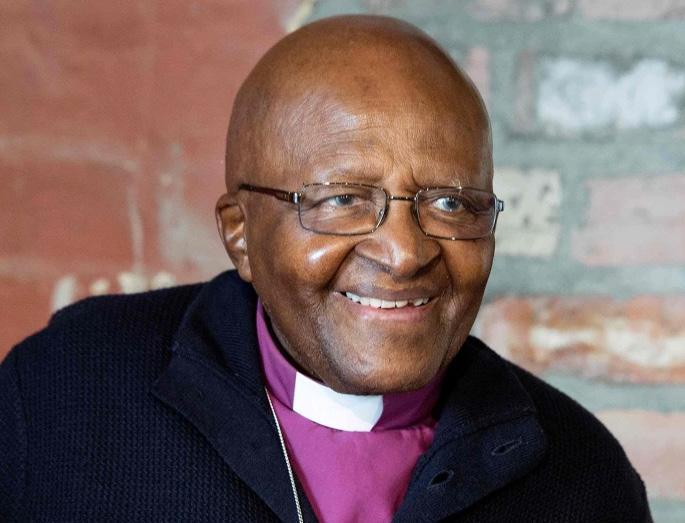
In the African nguni languages umuntu ngumuntu ngabantu means literally: we are people because of other people. I am because you are.
Based on our common humanity, the starting point of Ubuntu is to reach out to others - often across seemingly impenetrable barriers of alienation – to discover our interdependence.
In the process, we learn the power of empathy, dignity, and respect.
The theory is disarmingly simple, the practice requires experienced mediation, patience, and resilience.
Tutu Foundation UK in partnership with Youth Futures launched a successful pilot project in 10 London boroughs in 2017/2018 known as Ubuntu Round Tables.
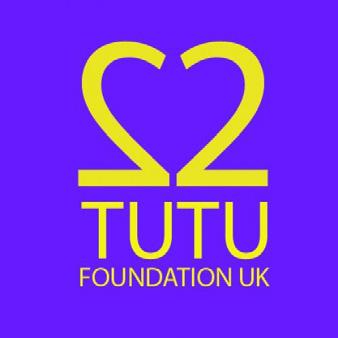
They mediate between the Metropolitan Police and disenfranchised youth in deprived neighbourhoods where a toxic combination of knife-crime, gangs and drugs and often inappropriate policing and inadequate social services have contributed to an atmosphere of fear and hopelessness in some communities.
Ubuntu Roundtables (URT’s) seek to empower youth and
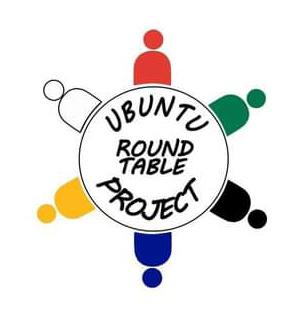
in the process train mediators in facilitation and leadership skills.
The project works to mitigate the power imbalance that exists between youth and the police.
Therefore, the facilitators are largely 25 or under, black or from an ethnic minority, and may have been in difficult interactions with the police themselves.
The momentum built by the pilot project in 2017/2018 was interrupted by the pandemic.
In the past year, the roundtables have resumed and TFUK chair Clive Conway has held talks with senior police officers in London, the West Midlands and in prisons with a view to extending the reach of the round tables.
“The roundtables can be used to bring parties together in any situation where there is conflict whether schools, communities or prisons,” said Conway.
In recent months, the Tutu Foundation UK has held talks with like-minded charities to explore collaborative opportunities.
I recently attended a roundtable at the Skills Hub and Pride Academy in West Drayton and saw the huge potential of these encounters for conflict resolution and community building.
The ten police officers, five academy staff and a dozen or so learners with special needs from several schools
interacted over two-and a-half hours under the guidance of Mark Murray, a founding facilitator.
The endorsement of the police officers, dedication of the academy staff and visceral presence of the students made for a vibrant engagement in which inclusivity trumped differences.
In the last week of January this year I travelled with Clive Conway and facilitator and motivational speaker Kheron Gilpin to participate in the annual conference of the Ubuntu Leadership Academy at the Gulbenkian Foundation in Lisbon attended by more than 1000 delegates from 16 countries.
Among the days’ proceedings was a video of the archbishop’s visit a decade ago and youth volunteers wearing black t-shirts bearing in white Nelson Mandela’s prison number 46664.
Kheron had the youthful audience enthralled with his energy and ubuntu-inspired spontaneity.
On the second day we visited a junior school amid a fiveday immersion project in which the learners experience the five pillars of Ubuntu including leading like Mandela, empathy and removing obstacles.
We heard presentations from high school students who had done the five-day immersion course and could observe how the experience had transformed them – particularly those marginalised students that did not hitherto feel fully included.
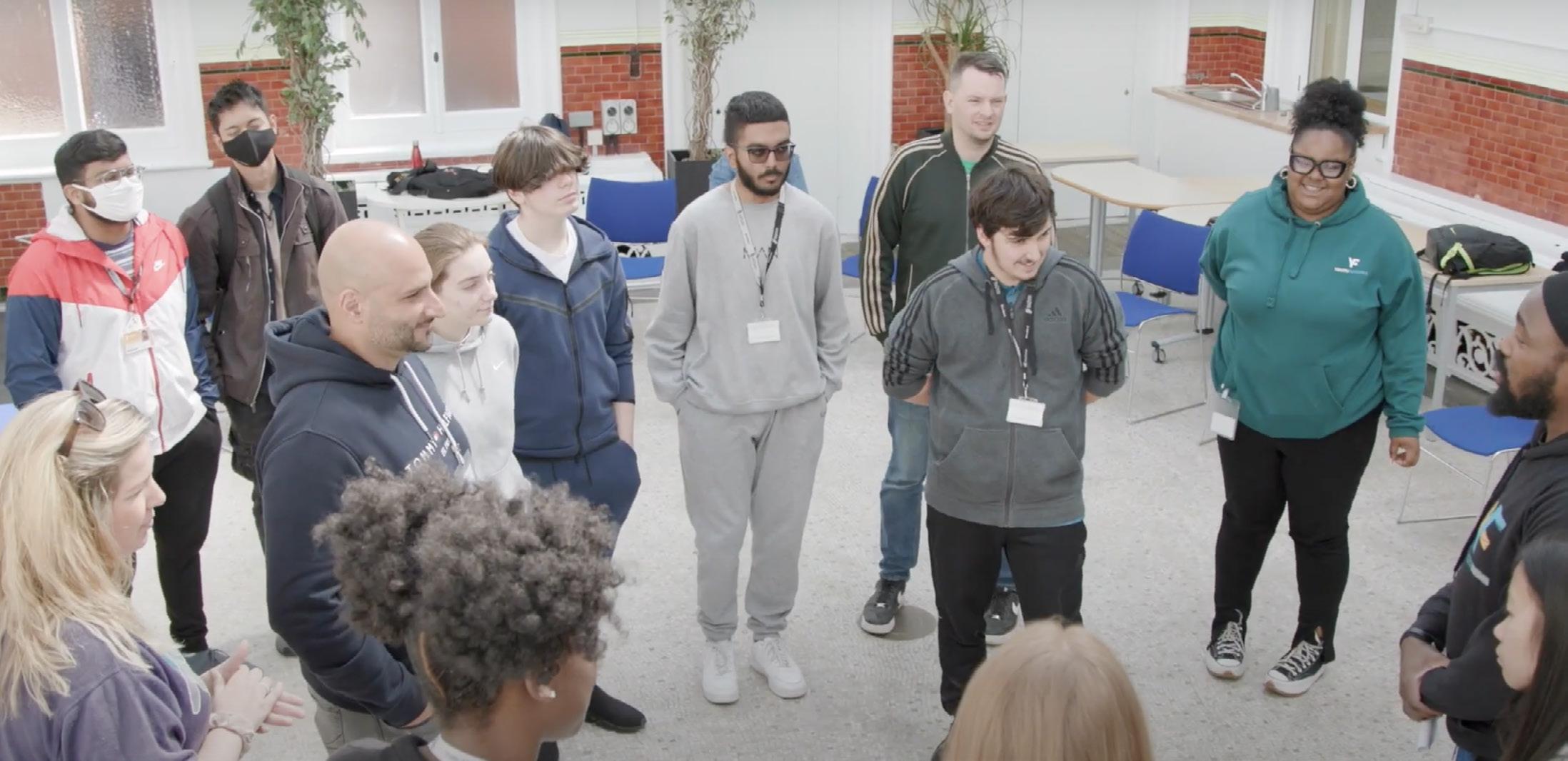
Rui Marques, the founder, and director of the Ubuntu Leadership Academy was supported by the Gulbenkian Foundation initially.
But today the project is funded by the Portuguese government and the European Union and is active in 400 schools.
We are also working with the Anti-Apartheid Legacy: Centre for Memory and Learning, a project of the Liliesleaf
Foundation UK headed by Caroline Kamana, to inspire youth in deprived areas by learning about the transition to democracy in South Africa.
The focus of the project is a community centre involving an extensive renovation of the former offices of the African National Congress in Islington which will mount community events and seminars.
One of the materials being used at schools is the film made by Sir Nick Stadlen who produced and directed the award-winning documentary on the Rivonia trial entitled Life is Wonderful: Mandela’s Unsung Heroes
The Ubuntu Leadership Academy in Lisbon is also in dialogue with the South African Education authorities about rolling out its program in South Africa as well as in Kenya and Zimbabwe.
Power to Change , a moving documentary on fighting knife-crime by Wendy Lewis and Roni Redman of Celebrate Life Events , was screened in a Westminster committee room on 12th July to a packed audience made up mainly of people living in affected areas and several - such as Pastor Louise Jones - who have lost loved ones in stabbings.
The film and the intense question-and-answer session thereafter demonstrated the need for more roundtables in affected communities.

Our live events portfolio of conferences and exhibitions brings together leading Government officials, trade organisations, business leaders, industry experts, thought leaders and trade associations. Amassing the most relevant and high profile delegates, our events offer highly targeted environments to network and conduct business. Whether you would like to find out more information about scheduled events or would like to discuss event partnerships please get in touch.


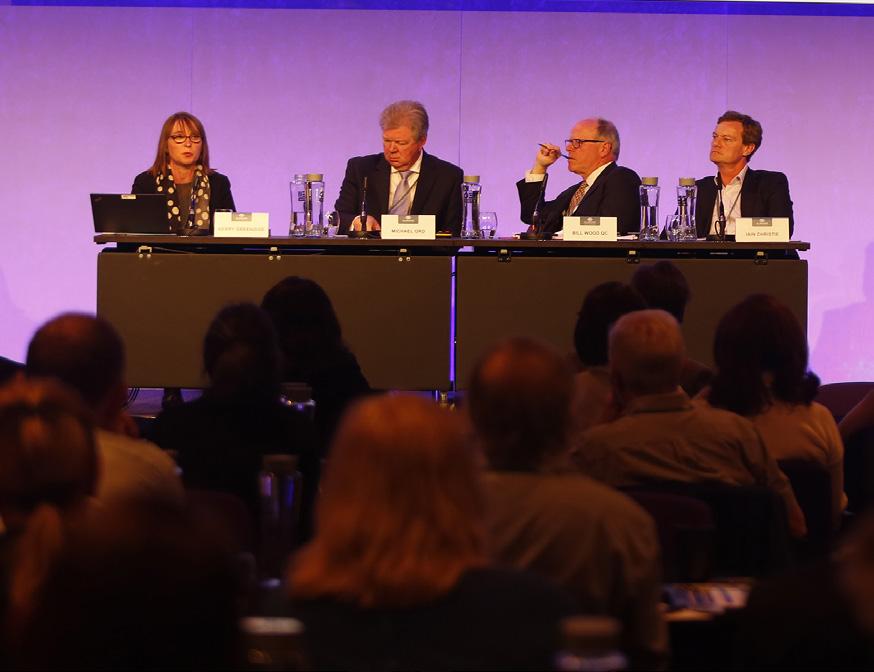
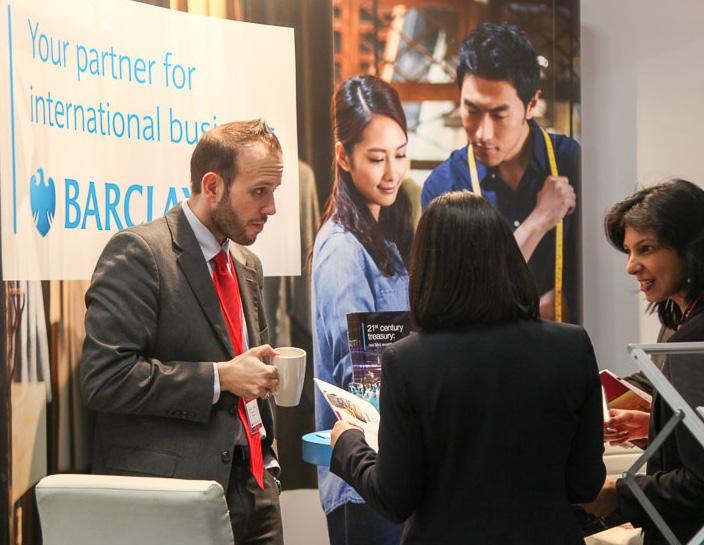
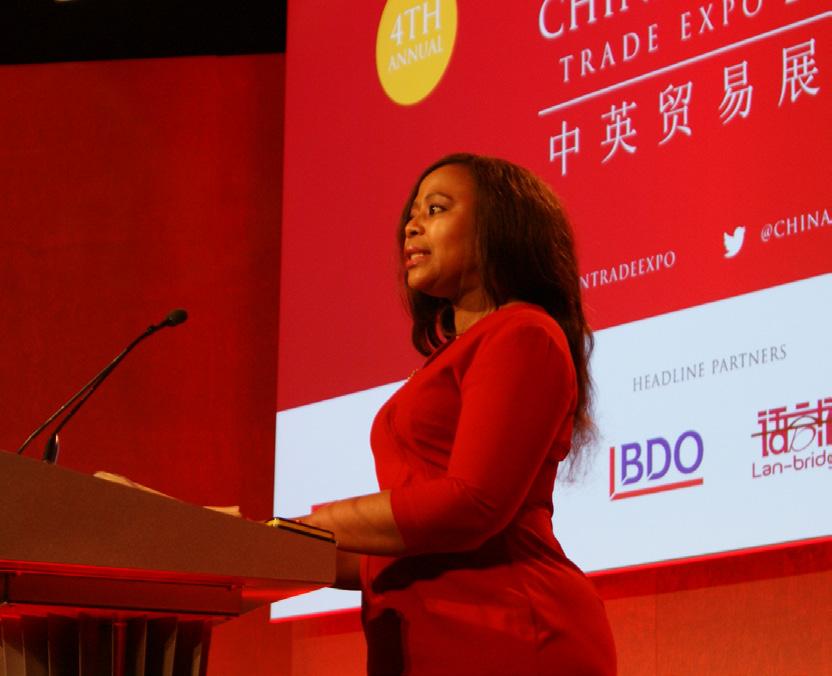


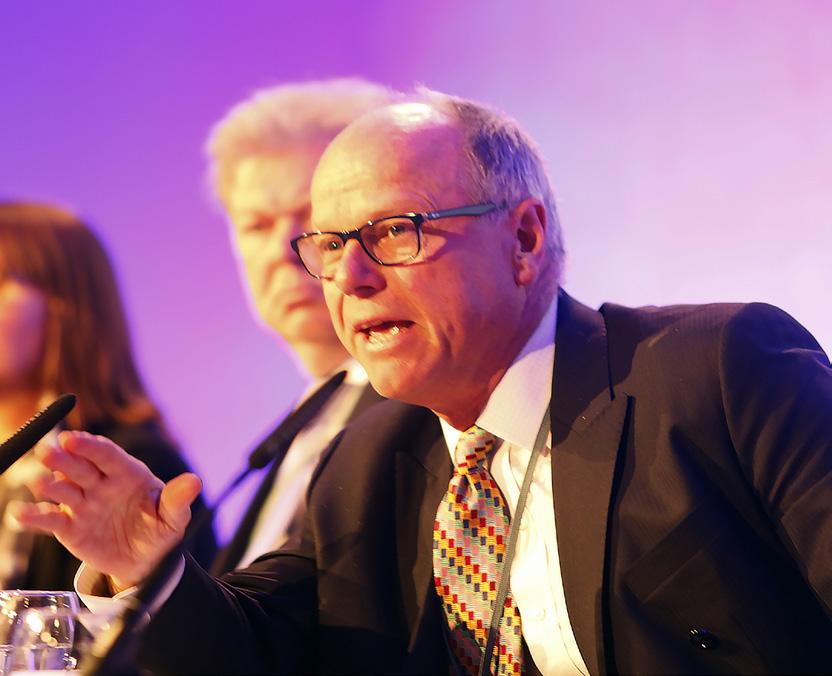
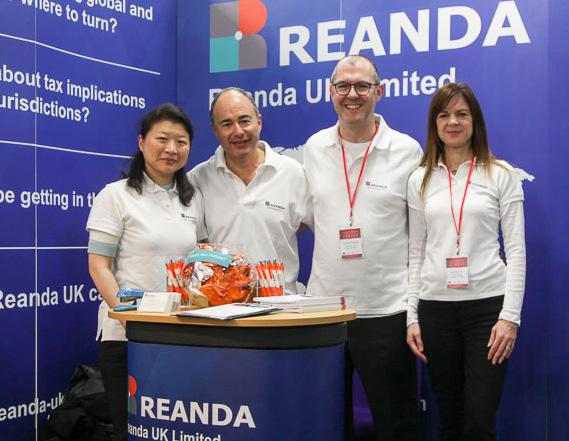
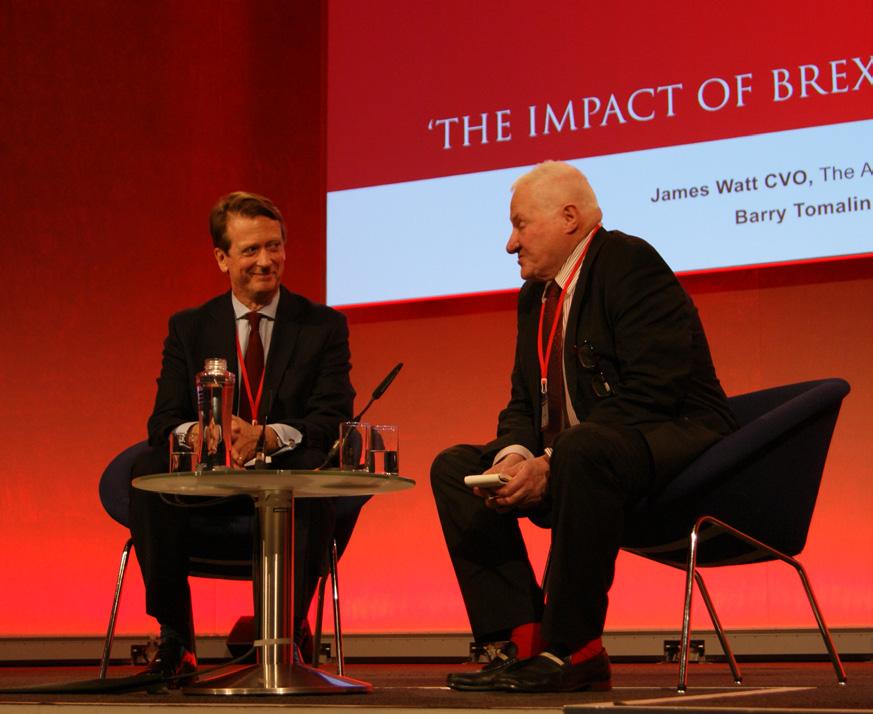






t: +44 (0)20 7831 0254 e: alex.efthymiades@consensiopartners.co.uk w: www.consensiopartners.co.uk

a: 30 Niton Street, London, SW6 6NJ Contact: Alex Efthymiades
Consensio is a leading workplace mediation provider, helping organisations to manage workplace conflict. Our services include: 1) mediation and conflict resolution training ranging from taster events to accredited training, 2) external mediation services for two-party and team disputes, 3) conflict coaching and 4) consultancy services to transform organisational responses to conflict.
t: +44 (0)1908 231 132 e: mary@focus-mediation.co.uk w: www.focus-mediation.co.uk
Contact: Mary Banham-Hall
Focus Mediation is a CMC Registered Provider, established in 1999 we cover the whole of the UK and handle all types of mediation cases.. We have a team of fully accredited Workplace, Civil/ Commercial and Family mediators with a wide range of professional backgrounds, ensuring you can choose the right specialist mediator for your dispute. We can help with all types of workplace and employment problems, our team have handled cases involving from 2 to 50+ people and can tailor the right programme to meet your needs saving you management time and costs...


t: +44 (0)20 7993 7600 e: mediationclerks@gclaw.co.uk w: gardencourtmediation.co.uk
a: 57-60 Lincoln’s Inn Fields, London WC2A 3LJ Contact: Lavinia Shaw-Brown
We offer a flexible, high-quality mediation service from the initial inquiry through to facilitating agreement. We have a team of experienced, professional mediators with the interpersonal skills to suit all civil, commercial, workplace and family disputes. Our aim is to help you find a resolution to the dispute quickly and effectively.

t: +44 (0)333 014 4575 e: info@mediate.co.uk w: www.mediate.co.uk
a: International Dispute Resolution Centre, 70 Fleet Street, London EC4Y 1EU Contact: Joanne Claypole
Leading UK and International Mediation Chambers established in 1995. Handling civil, commercial, family, workplace and employment disputes. Our mediators have, between them, mediated thousands of disputes and many of our members are recognised as expert mediators by the legal directories. In addition, we offer a full case administration service; from helping the parties select a mediator to arranging the date, venue and paperwork necessary to make your mediation as smooth and as successful as possible.
t: +44 (0)20 7127 9223 e: imoffice@independentmediators.co.uk w: www.independentmediators.co.uk

Launched in 2007, Independent Mediators (IM) is a leading UK and international mediation chambers. IM were awarded Who’s Who Legal Mediation Firm of the Year 2019 in May 2019. We manage the practices of nine of Europe’s leading full-time civil and commercial mediators; Charles Dodson, Phillip Howell-Richardson, Kate Jackson, Michel Kallipetis QC, Jonathan Lloyd-Jones, Mark Lomas QC, Bill Marsh, Andrew Paton and Nicholas Pryor. All nine mediators feature in the top tiers of the leading legal directories. They have mediated in excess of 8,500 matters between them in their careers. The commercial disputes mediated range in value from tens of thousands to multi-billion pounds and include almost every sector of business and law with parties from all over the UK and internationally.

t: +44 (0)798 537 3010 e: james@inmancox.com w: www.inmancox.com
Established for over 5 years, Inman Cox Mediation are specialist workplace resolution mediators. We provide expert advice, mediation and co-mediation services as well as ongoing support and training .ICM provides organisations with the tools needed to resolve future disputes and help prevent them from arising in the first instance. Working with a select number of organisations we work with HR professionals to get disputes resolved quickly. Our experience has led us to develop a number of bespoke training packages to deal with team dysfunction. Contact : James on 07985373010 or james@inmancox.com for a free consultation. www.inmancox.com
t: +44 (0)20 7583 9808 e: mrushton@jamsadr.com w: www.jamsadr.com
JAMS is the world’s largest private provider of ADR services with a caseload of around 15,000 disputes a year. Its London office provides arbitrators and mediators for cross-border and UK domestic disputes as well as administering international arbitrations in various sectors.

t: +44 7958 973 389 e: karima.fahmy@independentneutral.com w: www.independentneutral.com
Karima is a CEDR accredited and CMC registered Civil, Commercial and Workplace mediator. Having practised as a Corporate lawyer for over 20 years, Karima has extensive experience of helping parties resolve their differences and reach mutually satisfactory outcomes. Karima’s mediation practice is focussed on employment and workplace disputes; real estate and construction disputes; joint venture, shareholder and board disputes. Prior to sitting as a mediator, Karima was General Counsel of an international real estate investment and development business. Prior to that she spent 10 years at Hogan Lovells. Karima brings experience of navigating complex and sensitive commercial and stakeholder contexts.
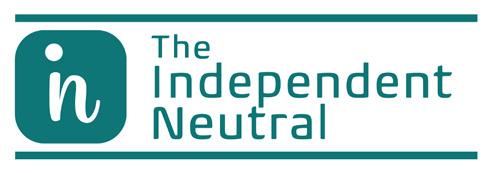

t: +44 (0) 7825 894 893 e: larry.george@kingswaylaw.uk w: linkedin.com/in/larry-george-b9114a46
w: P.O. Box 516, Cambridge CB1 0BD Contact: Larry George
Qualified Barrister; CEDR accredited mediator, 2010. Larry has 30+ years of experience as a commercial legal adviser advising on corporate and commercial matters. He has specialised in the oil business including oil trading but also has a great deal of experience in general commercial areas including in contracts, terms of trade and related disputes. Mediation experience includes franchising, engineering contracts and professional negligence. Larry has wide international experience and is a fluent Russian speaker.
t: +44 7905 868 058 e: tony@achievesuccess.org.uk
w: www.maverickmediator.co.uk
Anthony Munday is an independent ACAS-accredited workplace mediator. He specialises in working with conflicted Senior Teams. His previous career as a detective and senior leader enables him to empathise with clients in senior management positions. He has developed a unique Conflict Resolution Method. Anthony works in partnership with HR Leaders to conduct a root-cause analysis of the impact of conflict in the organisation. The financial and human costs of conflict for the client are extrapolated. They use the client’s own data to create an inclusive and holistic Action Plan to mitigate future Risks and Costs.
t: +44 (0)20 3621 3908 w: www.promediate.co.uk
ProMediate provides mediation for the whole range of civil and employment disputes as well as being a CMC Registered Training Provider. We also resolve disputes between traders and consumers under the ADR Regulations. We have a panel of over 50 mediators available to mediate online by telephone or in person throughout the UK and in the EU.

ROGER LEVITT
t: +44 (0)7776 141 717 e: roger@rogerlevittmediation.co.uk w: www.rogerlevittmediation.co.uk
I undertake all types of commercial mediation including: Property, Construction, Partnership, Corporate, Professional Indemnity, Insurance Financial & Wills. Member of Civil Mediation Council Registration Committee. I’m approaching 100 mediations.

STILLHR
t: +44 (0)7932 762 448 e: robert@stillhr.com w: www.stillhr.com Contact: Robert Still
Qualified workplace and team mediators. Robert Still FCIPD, Leye Oladapo and Paula Symons. Over 10 years’ experience across the UK and Europe. CMC Registered Mediation Provider 2019. Resolving individuals and team conflict.
Mediation
Conflict
Mental
Respect,
‘Working
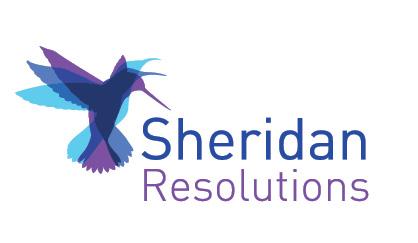
t: +44 (0)20 3753 5350 e: c w: www.sheridanresolutions.com
Contact: Caroline Sheridan
Caroline is a leading mediator recognised in both the Chambers UK and Legal 500 directories and her company Sheridan Resolutions Ltd was this year recognised as a best practice provider of mediation and leadership development services in the Law and Justice edition of the Parliamentary Review. Chair of the CMC’s Workplace and Employment Group, Caroline is also personally in demand as an Executive Coach and Supervisor as well as running a leadership development consultancy which is ILM Approved delivering leadership and management, coaching and mentoring qualifications to levels 3, 5 and 7.
t: +44 (0)20 7092 3186 e: david.liddle@thetcmgroup.com w: www.thetcmgroup.com
TCM are a leading provider of conflict management, mediation, HR and leadership training and consultancy. We deliver tangible benefits to our customers by transforming conflict and change from a threat into an opportunity. For more details, please Read Managing Conflict (Kogan Page/ CIPD) available from https://amzn.to/2tOlIvP written by TCM’s CEO David Liddle.
The magazine is published quarterly and circulated by email to 60,000 industry professionals such as major insurance companies, doctors, healthcare professionals, law firms and medico-legal agencies and experts. It is also hosted on the SpecialistInfo website (Specialistinfo.com) which has a database of 90,000 doctors.

For advertising enquiries please contact Iconic Media Solutions:
e: craig.kelly@iconicmediasolutions.co.uk
t: +44 (0)20 3693 1940 www.iconicmediasolutions.co.uk
presented by:
www.specialistinfo.com



t: +44 (0)20 7831 0254 e: alex.efthymiades@consensiopartners.co.uk w: www.consensiopartners.co.uk

a: 30 Niton Street, London, SW6 6NJ Contact: Alex Efthymiades
Consensio is a leading workplace mediation training provider, helping organisations to manage workplace conflict. Our services include: 1) mediation and conflict management training, ranging from taster events to accredited training, 2) external mediation services for two-party and team disputes, 3) conflict coaching and 4) consultancy services to transform organisational responses to conflict.
t: +44 7905 868 058 e: tony@achievesuccess.org.uk w: www.maverickmediator.co.uk
We are developing CPD-accredited training courses. Employment Conflict Resolution ACAS estimates the cost of workplace conflict as £28.5 billion per year in the UK. Do you know the costs in your organisation? We have developed a coherent and sustainable strategy that empowers you to mitigate the costs of workplace conflict. We use a root-cause analysis methodology using your data sets. Real-time. Real life. Working together with your People Team and the C Suite we create a realistic Action Plan that you implement. We support you moving forward, to embed the learning and cultural change.
t: +44 (0)20 3621 3908 w: www.promediate.co.uk
ProMediate provides mediation for the whole range of civil and employment disputes as well as being a CMC Registered Training Provider. We also resolve disputes between traders and consumers under the ADR Regulations. We have a panel of over 50 mediators available to mediate online by telephone or in person throughout the UK and in the EU.
t: +44 (0)7932 762 448 e: robert@stillhr.com w: www.stillhr.com Contact: Robert Still
Facilitated Conversations and Mediation Skills; delivered in-house by qualified and practicing workplace mediators, tailored to client organisational context, includes role play simulations using professional actors.
THE TCM GROUP
t: +44 (0)20 7092 3186 e: david.liddle@thetcmgroup.com w: www.thetcmgroup.com
TCM are a leading provider of conflict management, mediation, HR and leadership training and consultancy. We deliver tangible benefits to our customers by transforming conflict and change from a threat into an opportunity. For more details, please Read Managing Conflict (Kogan Page/ CIPD) available from https://amzn.to/2tOlIvP written by TCM’s CEO David Liddle.
Mediation
Conflict Resolution
Creating Happier Workplaces
Employee Relations
Facilitation
Mediation
Conflict Resolution
Training
Mental Health & Well-Being
Respect, Diversity & Inclusion
‘Working with individuals and organisations to improve their workplaces and working relationships’
t: +44 (0)20 7831 0254 e: alex.efthymiades@consensiopartners.co.uk w: www.consensiopartners.co.uk
a: 30 Niton Street, London, SW6 6NJ Contact: Alex Efthymiades
Consensio is a leading workplace mediation and conflict management provider, supporting organisations to informally manage workplace conflict in the UK, Europe and Asia.


t: +44 (0)333 014 4575 e: info@mediate.co.uk w: www.mediate.co.uk
a: International Dispute Resolution Centre, 70 Fleet Street, London EC4Y 1EU
Contact: Joanne Claypole
Leading UK and International Mediation Chambers established in 1995. Handling civil, commercial, family, workplace and employment disputes. Our mediators have, between them, mediated thousands of disputes and many of our members are recognised as expert mediators by the legal directories. In addition, we offer a full case administration service; from helping the parties select a mediator to arranging the date, venue and paperwork necessary to make your mediation as smooth and as successful as possible.
t: +44 (0)20 7127 9223 e: imoffice@independentmediators.co.uk w: www.independentmediators.co.uk

Launched in 2007, Independent Mediators (IM) is a leading UK and international mediation chambers. IM were awarded Who’s Who Legal Mediation Firm of the Year 2019 in May 2019. We manage the practices of nine of Europe’s leading full-time civil and commercial mediators; Charles Dodson, Phillip Howell-Richardson, Kate Jackson, Michel Kallipetis QC, Jonathan Lloyd-Jones, Mark Lomas QC, Bill Marsh, Andrew Paton and Nicholas Pryor. All nine mediators feature in the top tiers of the leading legal directories. They have mediated in excess of 8,500 matters between them in their careers. The commercial disputes mediated range in value from tens of thousands to multi-billion pounds and include almost every sector of business and law with parties from all over the UK and internationally.

t: +44 (0)20 3621 3908 w: www.promediate.co.uk
ProMediate provides mediation for the whole range of civil and employment disputes as well as being a CMC Registered Training Provider. We also resolve disputes between traders and consumers under the ADR Regulations. We have a panel of over 50 mediators available to mediate online by telephone or in person throughout the UK and in the EU.
t: +44 (0)20 7092 3186 e: david.liddle@thetcmgroup.com w: www.thetcmgroup.com
The TCM Group designs and delivers award winning mediation, conflict management, employee relations and leadership consultancy in the UK and globally. We can deliver assignments across the world, often at short notice. Our fully accredited mediation, investigation and leadership training programmes can be adapted to meet your political, legal or cultural context. Our highly experienced tutors, mediators and facilitators are available to support you at every stage of your resolution journey plus, we apply industry leading technology to support our assignments. Please contact us now on +44 207 092 3186 for more information and a no obligation discussion.
The Medico-Legal Conference has now firmly established itself as the UK's leading event bringing together medico-legal professionals, industry experts, and suppliers. Attend to experience our high-level programme of speakers, interactive exhibition zone, and networking.
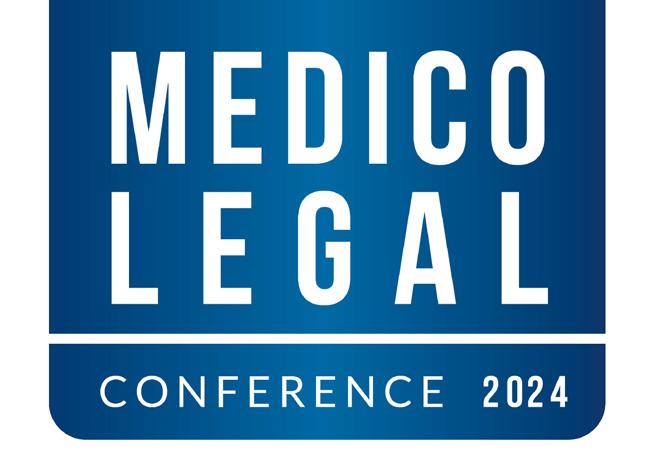
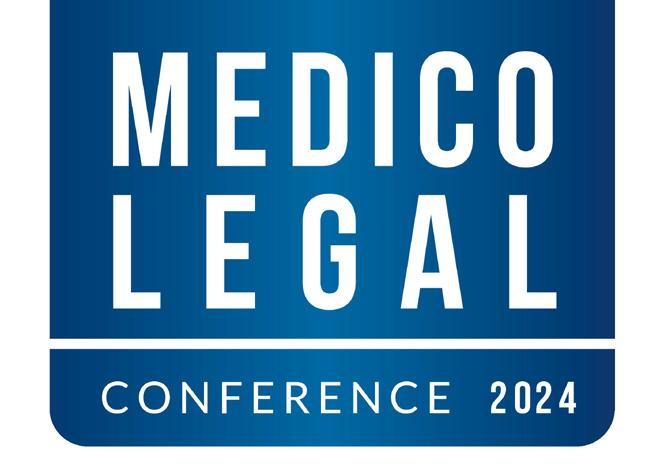
The conference takes place at Congress Centre, London on Tuesday 20th June 2024. Book now and benefit from our 30% off early bird offer
Be nefits of Atte nding:
Be nefits of Atte nding:
Be nefits of Atte nding:
• Be updated on the latest medico-le gal developments, reforms and i ssues
• Be updated on the latest medico-le gal developments, reforms and i ssues
• Be updated on the latest medico-le gal developments, reforms and i ssues
• in some of the most recent high profile cases
• in some of the most recent high profile cases
• Learn about the increasing role of mediation in settling medico-legal claims
• in some of the most recent high profile cases
• Learn about the increasing role of mediation in settling medico-legal claims
• ficulties
• Learn about the increasing role of mediation in settling medico-legal claims


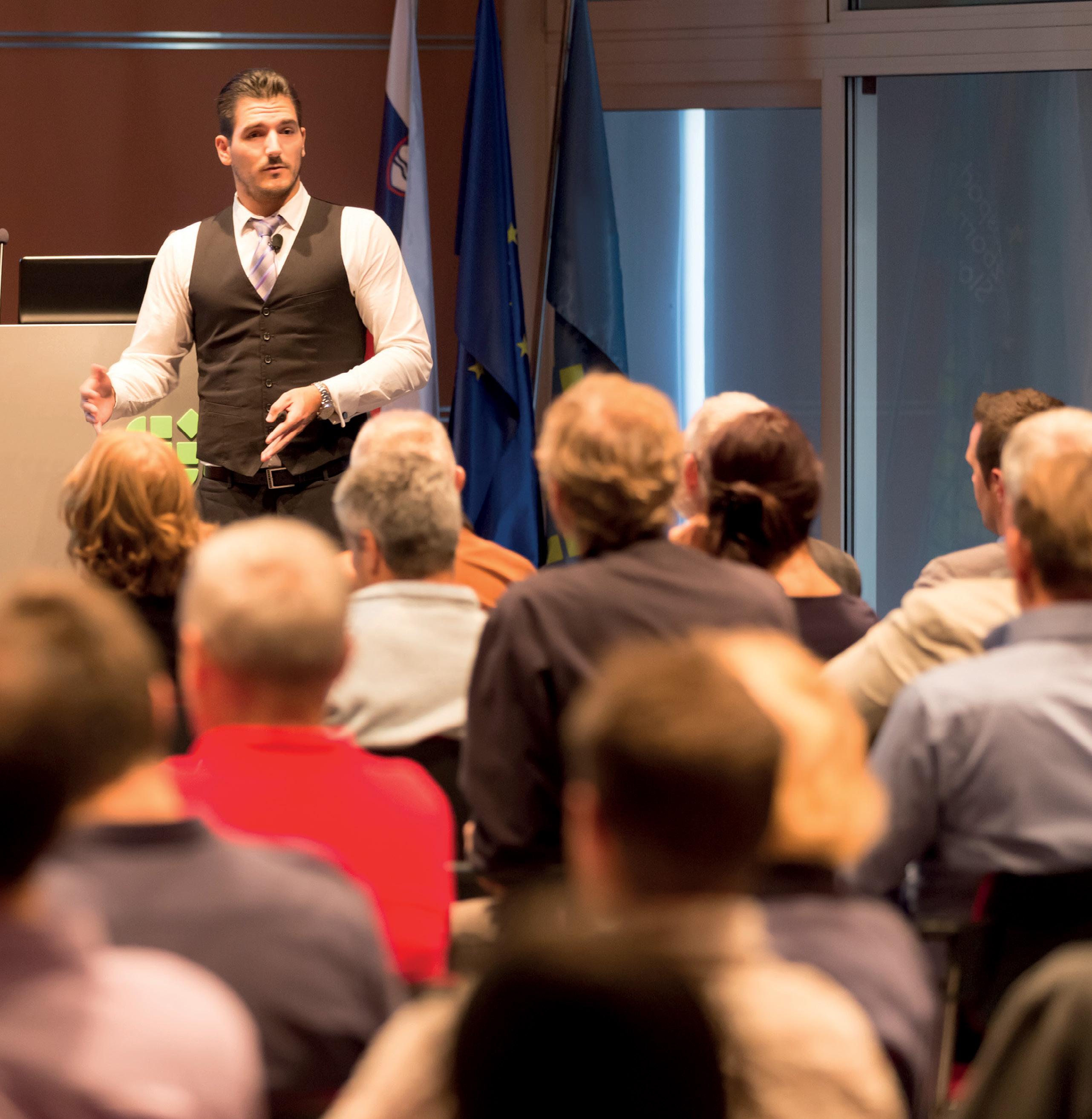

• ficulties
• ficulties
• Enjoy excellent networking opport unities, including a Champagne reception
• Enjoy excellent networking opport unities, including a Champagne reception
• Enjoy excellent networking opport unities, including a Champagne reception
6 Hou r s C PD
6 Hou r s C PD
6 Hou r s C PD
E ss entia l fo r Do ct ors, L aw yer s and a ll t hos e in v ol ved i n the M ed ic o-L ega l Pr of e ssio n
E ss entia l fo r Do ct ors, L aw yer s and a ll t hos e in v ol ved i n the M ed ic o-L ega l Pr of e ssio n
E ss entia l fo r Do ct ors, L aw yer s and a ll t hos e in v ol ved i n the M ed ic o-L ega l Pr of e ssio n
Fo r mo r e i nfo r mat i on an d to b ook you r pl ac e pl ease v isi t:
Fo r mo r e i nfo r mat i on an d to b ook you r pl ac e pl ease v isi t:
30UK Mediation Journal, Issue 11 30



Fo r mo r e i nfo r mat i on an d to b ook you r pl ac e pl ease v isi t:
w w w . m e d i c o l e g a l c o n f e r e n c e . c o m
w w w . m e d i c o l e g a l c o n f e r e n c e . c o m
w w w . m e d i c o l e g a l c o n f e r e n c e . c o m